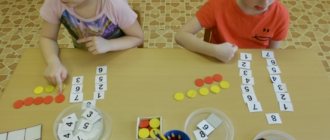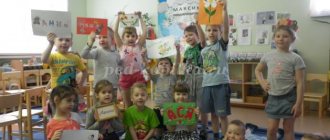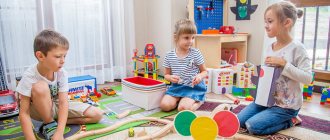Communication skills are the basis that helps a child find friends, make acquaintances and realize himself in society. When a person is isolated in his own little world, it is difficult for him to become in demand and popular. But if he has learned to convey his thoughts to others and communicate with people, he holds the key to personal success.
But this key is not given to every person at birth. The good news is that a child’s communication skills can and should be developed. And our article will tell parents how to do it correctly.
What are communication skills?
Translated from Latin, “communicative” literally means: “communicative”, “sociable”.
Communication is not a separate personality quality, but a whole set of different skills. And it is expressed in the ability to communicate with other people, the ability to build relationships with them.
Conventionally, communication skills are divided into two groups:
- skills that help a person convey his thoughts and feelings (speaking skills, self-control, self-presentation);
- skills that help to understand others (the ability to negotiate, empathize, listen and hear the interlocutor).
Why does a child need communication skills?
So as not to be left alone. To become a member of society, to be accepted by others, while remaining yourself. If a person does not know how to talk about himself, but only listen to others, he will not become an individual, he will lose his “I”.
The other side is that the child knows how to talk exclusively about himself, but does not know how to listen to others. Such a person will not be able to build quality social connections in the future or expand his social circle.
A little person acquires communication skills gradually as he grows and matures. Step by step, he learns to read non-verbal information (facial expressions, gestures, tone of voice), then he learns the first words. Growing up, he acquires the ability to listen and hear his interlocutor, put himself in his place, and perceive the shades of human relationships.
The first communication skills are formed in the family, then in kindergarten, school, and then throughout life. Therefore, the ability or inability to interact with others depends on those processes that occur from early childhood until the period of maturity.
Some children get along better with others, make contact, and find it easier to communicate with peers and adults. Others experience difficulty and discomfort. And although innate qualities should not be discounted, communication is still one of the aspects of personality development. This means that the ability to communicate can and should be developed.
To develop communication skills in a child, you need to help him master three basics:
- desire to communicate;
- knowledge of the basics of social communication;
- the actual ability to communicate.
Desire to communicate
This means that the child himself must feel the need to communicate with people around him. And this need can and should be developed. If you don't do this, there will be no progress. An adult, due to life experience, can motivate himself to communicate with others. Children don't know how to do this.
Know how to communicate
The desire to interact with others is not enough. You also need to know how exactly this is done. Young children do not know about the norms and rules of communication. Parents suggest how to resolve conflicts with peers, maintain a conversation, say hello, etc.
Ability to communicate
This point follows from the previous one, when communicative knowledge is applied in practice. The ability to communicate consists of a whole complex of practical skills:
- the ability to interest an interlocutor and attract his attention;
- goodwill, friendliness;
- the ability to accept the opinion of the interlocutor and not impose your own;
- the ability to argue information and tactfully defend one’s point of view;
- the ability to captivate your interlocutor, to interest him in your opinion and ideas;
- ability to resolve conflict situations, seek balance when resolving controversial situations.
Another important component of good communication is active listening. It is usually most difficult for choleric children. They can’t wait to tell as much as possible about themselves, their impressions, and hobbies. The interlocutor’s statements are relegated to the background.
If a child has successfully mastered these three skills, then we can say that his communication skills are truly developed.
Main aspects of socialization
In accordance with the Federal State Educational Standard (FSES) for preschool education, communicative development and socialization should be considered as a single educational area. The communicative competence of preschoolers can only be formed during communication with adults and peers. The main goal of social and communicative development is to instill in the child the skills to communicate with others like him. A preschooler should:
- Form behavior that would be safe for himself and for others.
- Learn to communicate equally successfully with both children and adults. Some children easily find a common language only with peers, embarrassed by the presence of their elders. Other girls and boys feel comfortable in the company of adults - their close relatives. At the same time, they experience fear of communicating with strangers, even with their peers.
- Develop positive attitudes towards joint work and creativity.
- Learn the basic moral norms, relationships and mechanisms of behavior accepted in society.
- Master the emotional component of communication, learn responsiveness, mercy and empathy.
- Develop the ability to make independent decisions in accordance with the moral standards accepted in a given society.
Features of the development of communication skills in preschoolers
At each age stage, children's communication skills develop and improve.
From birth to 2 years
During this period, the child takes his first steps not only physically, but also communicatively. The social circle of children at this age is limited to mom, dad and other close relatives. Children learn to convey their needs to adults and, in turn, understand their interlocutor.
virtual communication
Modern schoolchildren and preschoolers often communicate with their peers on social networks. Today's children aged 3-4 years old know how to use mobile phones and computers. A 6-7 year old child with accounts is a common occurrence these days. There is no consensus on whether the development of communication skills in preschoolers on the Internet is evil or good. Virtual communication has appeared relatively recently and is developing rapidly. Modern teacher-researchers have not yet made objective conclusions. For obvious reasons, it is impossible to find the necessary information in the pedagogical manuals of Soviet scientists.
Diagnosis of the communication abilities of boys and girls who spend a lot of time online shows that such children have some deviations in mental development. The vocabulary of an amateur visiting pages on social networks is more meager. Specifics of virtual communication:
- People look much better online than they do in real life. The lack of direct contact with interlocutors is liberating. Instead of a real photo, you can insert someone else's. Communicative development of preschool children occurs with a fictional character. The desire to look “cool” forces a preschooler to also turn into a fictional character. He realizes his need for communication, but does not receive the correct idea of what real communication is.
- There is no emotive component in virtual dialogue, which interferes with the normal development of communication skills in preschool children. Expressing emotions is an integral part of communication. On the Internet, real feelings are replaced by emoticons, with which you can convey any emotion and deceive your interlocutor. Hiding true feelings in real communication is much more difficult.
- Virtual communication is too monotonous. For the full communicative development of preschoolers, not only dialogue is necessary, but also joint actions. Virtual contacts do not affect one of the most important areas of socialization. Communication between children in real life means playing games, going to the movies together, etc. This is impossible on social networks.
Methods for developing communication skills
The main ways to develop communication skills are exercise and play.
Before choosing activities for your child, it is useful to take note of a few recommendations:
- Do not try to use a large number of exercises or games at one time, especially with preschoolers. Their performance is low and fatigue is rapid.
- Training should be carried out when the child is in a good mood: not overtired, not hungry, does not want to sleep.
- All exercises and games will only be beneficial if the child really wants to do them. Therefore, you should not force him to take classes; it is better to conduct them when he himself expresses a desire.
Any game or exercise must be played out in such a way that children understand that interacting with each other is very important.
Games to develop communication skills
Any games to develop communication skills must be age-appropriate, that is, be accessible and understandable. If several preschool children are playing at the same time (in the yard or in the family), you need to give each of them the opportunity to participate.
It is the adult who controls the activities of the players, sets an example, explains the rules and makes sure that everyone is involved in the game. If one of the players pulled away and became shy, you need to help him return, but do it unobtrusively, gently.
- Game "Animal Choir". Any popular children's song is chosen for the game. But you need to perform it not with words, but trying to imitate the voice of different animals: “quack-quack”, “meow-meow”, “kva-kva-kva”. Each player portrays a specific animal and performs his part of the song. All the children finish singing.
- Game "Compliments". The goal of the game is to develop mutual politeness and emotional contacts. Participants should say pleasant, beautiful words to each other, trying not to repeat themselves. When giving compliments, you need to look your interlocutor in the eyes. Anyone who receives a compliment must thank the speaker in return.
- Game "Mousetrap". This game will teach you how to find a way out of difficult situations. All participants form a tight circle, in the middle of which the “mouse” hides. She must find a way out of the circle or persuade one of the participants to let her through. If the game takes place in a close company, for example, with the participation of parents, the little player can be hugged tightly and offered to free himself through persuasion.
Exercises to develop communication skills
It is better to carry them out based on clarity. That is, for work you will need a board and pictures. If several children participate in an exercise, they perform them in turns. The rest of the participants observe, and if the performer allows, they can give advice.
To develop communication skills, you can use the following exercises:
- Place cards on the board with images of people on whose faces you can track certain emotions. Next, you need to tell a short story about a specific person. For example: “This is Vasya, he is sad because his favorite toy is broken.” The presenter asks the children how they can help Vasya, the players take turns offering their options.
- Divide the board into two halves, mark one with a “+” sign, the other with a “-”. Next, the children take turns going to the board and are offered several pictures. Each participant chooses a “bad” and a “good” option. It is important that the direction of the pictures is the same, for example, a whole and a broken cup, a smiling and a crying boy. Players need to make up a short story based on the pictures.
- Collective listening to a work of art. It's better to start with small fairy tales. An adult reads it to the children, and then everyone collectively discusses the plot. Particular attention should be paid to the actions of the characters, highlighting good deeds. Negative aspects also need to be noted, together with the children, figuring out why this cannot be done.
Advice! If a small participant finds it difficult to perform any exercise, you can help him. But there is no need to complete tasks for children. You can ask leading questions or voice clues. It is better to start the exercise with the simplest elements, gradually complicating the task.
Social phobia
The fear of communicating with others like themselves occurs not only in children, but also in adults. The sooner parents notice the problem, the easier it will be to get rid of it. The lack of communication skills in children of senior preschool age leads to the fact that a withdrawn child grows into a withdrawn adult. Such a person will have many problems with finding a job, developing a career and happiness in his personal life.
You can distinguish a social phobia by a number of signs:
- behaves withdrawn, especially in the presence of strangers;
- A social phobic prefers communicating with animals to communicating with peers in preschool age;
- Such children usually have no friends;
- Social phobes avoid crowded places, do not like festive events, and are afraid to speak in public.
The presence of all these signs indicates violations of the social and communicative development of preschool children.
Parents need to talk with their child. A diagnostic conversation should not turn into an interrogation. Mom or dad, in an unobtrusive manner, needs to ask the baby a question about why he doesn’t want to play with other children. Perhaps one of his peers or adults offended him, insulted him, laughed at him, and after that the child lost trust in all people.
In some cases, adults need to take the organization of communication between preschool children into their own hands. You can invite people you know with children to visit. Social phobes are better at making contact in a familiar environment (at home) than in an unfamiliar one. To liberate the child, parents can take part in the game. The organization of contact must be approached taking into account the peculiarities of communication between preschoolers and peers. As soon as the children get to know each other better and get involved in gaming activities, adults need to quietly leave the game.
Individualization is not synonymous with social phobia. Sometimes children prefer loneliness to the company of their peers because they are not interested in being with them. At the same time, refusal to communicate with other children does not worsen the social competence of preschoolers. Parents should identify their son or daughter’s hobbies and organize leisure time for the child based on his interests, for example, enroll him in a sports section.
How to develop your child's communication skills in everyday life
In order for a child to learn, and most importantly, to want to communicate with people around him, from childhood he needs to be provided with:
- psychological comfort;
- the opportunity to communicate with people of different ages;
- support for parents and teachers in organizing communication in the group.
In the first years of a person’s life, communication skills are shaped or not shaped by parents and family members. It is they who have the most important role - to teach the child to communicate. You don't have to be a teacher to do this. It is enough to take note of a few tips and effective techniques.
The role of the family in the development of communication skills in a child
Sometimes parents make a mistake in developing the communication skills of their son or daughter. But dads and moms themselves often don’t even know about it.
Here are some examples of erroneous patterns of behavior in adult-child relationships that make it difficult to develop communication skills:
- "The pride of the family." Almost all parents consider their children to be the best and wonderful in everything. But the boundaries between unconditional love and permissiveness collapse when the child is recognized as exceptional, superior to his peers in everything. Every little person’s wish is fulfilled, all his mistakes and mistakes are forgiven, not discussed or analyzed. Such children grow up to be selfish, spoiled beyond measure.
- "Favorite." Often appears in large families. The attitude towards it is almost the same as with the “Pride of the Family” model. But only in the case of a pet, the child is singled out by only one family member. The other children feel this acutely, and relationships between brothers and sisters become envious and negative.
- "Cinderella". Another typical behavior pattern for large families. From childhood, the child is assigned a secondary role. His whole life is subordinated to his brother or sister, whom his parents, for some reason, consider more successful and beloved. “Cinderella” is forced to look after the younger one or please the older one. The result is envy and an inferiority complex.
- "Forever guilty." Such a child only causes irritation to other family members. It is he who is the cause of all troubles and is to blame for everything, even for what he did not do. Throughout childhood, a little person is terrified of punishment, of parents’ displeasure, lives in eternal fear, and becomes an outcast.
- "Good girl" (boy). From birth, this child absorbed the concepts of “good”, “bad”, “decent” and “indecent”. His whole life is subject to a whole set of rules. The opinions and interests of such children are often ignored. For parents, only one thing is important - to let others understand: the child was raised conscientiously. Growing up, a person with an excellent student complex may, on principle, commit indecent and immoral acts.
- "Problem child." Too noisy, too mischievous, too active. He does not know how and does not want to hear others; pleas, persuasion and punishment do not work on him. Often this model of behavior is due to the fact that parents do not pay enough attention to raising the child, are unable or do not want to find a common language with him.
- "Crystal Vase". Children who have experienced a serious shock, trauma or serious illness often grow up too fragile, vulnerable and protected. Those close to him protect him from everything that, in their opinion, could harm him. Such a child grows up without initiative, in the belief that everyone owes him, constantly waiting for concessions.
Socialization structure
Socialization of preschool children involves communication with adults and peers, during which the transfer of social experience occurs. This is an ongoing process that continues at home, in kindergarten and in other institutions attended by the child. Socialization of children of middle preschool age affects 3 main areas:
- Activity aspect. It implies the actions of an individual aimed at an object in order to satisfy the need that has arisen. The main activity lies in the game, it is through it that preschoolers develop communication with their peers.
- Communication. The formation of communication skills is carried out in the process of direct communication. Conversation (dialogue or polylogue) teaches interaction with another person. When children interact with each other or with elders, they develop communication skills. The child learns to focus on the interlocutor.
- Self-awareness. Communication of preschoolers directly affects the development of his self-awareness. In order to feel his significance, to understand his place in the world, the baby needs another person. For successful socialization of preschool children, you need to try on different roles. In the store, the child acts as a buyer. At home he plays the role of a son or daughter (grandson or granddaughter).
Possible impairment of communication skills
Communication skills are not always developed as quickly and efficiently as parents would like. There are several main communication problems in children:
- Painful mental state: anxiety, nervousness, rapid mood swings, increased excitability.
- Emotional deafness: the child does not perceive the emotions of people around him.
- Complete ignorance of others, isolation in one’s own world.
Problems in the development of communication skills usually occur in children who have the following character traits:
- Shyness, excessive isolation: such guys are usually silent, so they do not attract the children around them.
- Aggressiveness: A person who hurts others is not popular with their peers.
- Selfishness: children do not know how to empathize with others, and accordingly, they are treated the same way.
- Passivity: the child does not have his own opinion, is not able to come up with exciting activities for his peers, and does not participate in group games.
Formation of communication abilities in preschool children (pedagogical technology)
Prepared information
senior teacher of MBDOU kindergarten
general developmental type No. 2 “Dolphin”
Likhacheva Oksana Aleksandrovna
Moscow Region, Ozyory 2022
“Introducing a child into the world of human relationships is one of the most important
tasks of educating the personality of a preschool child”
V.A. Sukhomlinsky
Today, one of the leading priorities in education is the communicative orientation of the educational process. This is significant, since the formation of a personality capable of organizing interpersonal interaction and solving communication problems ensures its successful adaptation in the modern sociocultural space.
The content of the educational process in kindergarten is determined by communicative goals and objectives at all stages of education, where it is already aimed at developing the communicative culture and sociocultural education of preschoolers, allowing them to be equal partners in intercultural communication in the everyday, cultural and everyday spheres.
Children are in greater need of developing communicative competence. And therefore, violations of speech function cannot but have a negative impact on the development of the process of communicative competence. Such a developmental deviation as a general underdevelopment of speech, which is accompanied by the immaturity of certain mental functions and emotional instability, indicates the presence of persistent violations of the communicative act, which in turn makes it difficult, and sometimes even impossible, for the development of children’s communicative competence.
Underdevelopment of speech means reduces the level of communication, contributes to the emergence of psychological characteristics, and gives rise to specific features of general and speech behavior
The conditions for the development of communicative competence of preschoolers are:
- Social situation of child development;
- An emerging need to communicate with adults and peers;
- Joint activity (leading play activity) and learning (based on play activity), which create the child’s zone of proximal development.
Communicative correction, based on communicative competence, is focused on changing the system of value orientations of the child’s personality and includes an impact on the motivational sphere of the preschooler, his communicative activity, and communicative culture.
Features of the communicative competence of children of senior preschool age include:
— the presence of developed phrasal speech with elements of additional development of vocabulary, grammar and phonetics;
- characterized by an accurate understanding and use of generalized concepts, words with abstract and abstract meanings;
- good vocabulary;
- difficulties in reproducing words and phrases of complex syllabic structure;
— sufficient differentiation of sounds by ear;
- good speech activity and sufficient criticality towards one’s defect;
- violation of phonemic perception;
- decreased need for communication, undeveloped methods of communication (dialogue and monologue speech), disinterest in contacts, inability to navigate a communication situation and negativism.
These problems in the development of communicative competence of children with general speech underdevelopment are not spontaneously overcome. They require specially organized work from the teacher of a preschool educational institution to correct them on the basis of an integrated and individual approach through the creation of an optimal developmental environment and immersion of the child in joint activities with adults and children.
The study and analysis of psychological and pedagogical literature shows that children with ODD have such psychological characteristics as isolation, timidity, indecisiveness, which give rise to such specific features of general and speech behavior as limited contact, delayed involvement in a communication situation, inability to maintain a conversation, listen to sounds. speech (Yu.F. Garkusha, E.M. Mastyukova, S.A. Mironova).
Characterizing the state of knowledge of the problem in relation to preschool age, we have to state that in the psychological and pedagogical literature many aspects of the formation of communication skills remain poorly developed. The content of communication skills, criteria and indicators of their development in preschool children are not sufficiently disclosed; the sequence of including preschool children in the process of their formation, the forms of organizing children’s activities outside of class, have not been determined. Available research allows us to highlight the contradiction between the recognition of the importance of communication skills in the education of the child’s personality as a subject of communicative activity and the lack of development of pedagogical technology and methodological tools for the formation of these skills, in accordance with the requirements of the state standard of preschool education.
Research by teachers and psychologists examines the communicative competence of preschool children with SLD as a set of knowledge, skills and abilities that ensure the effectiveness of communication processes (mastering speech communication skills, perception, evaluation and interpretation of communicative actions, planning a communication situation) taking into account the specifics of the course of speech disorders, including impact on the motivational sphere (changes in value orientations and attitudes of the individual, the formation of a communicative culture), as well as the rules for regulating the communicative behavior of a preschooler and the means of its correction.
In the structure of a preschooler’s communicative competence, external and internal characteristics are identified:
- communication with adults,
— formation of communication skills,
— formation of motivational involvement in speech utterance
— development of voluntary regulation of sensorimotor (motor) activity;
— development of verbal-logical components of cognitive activity,
— formation of the child’s speech and language competence.
The communicative competence of preschool children develops in time and space, determined by social conditions, gender, age, individual characteristics of children, subject-related practical activities, the organization of educational work, and the specifics of the communication space.
The stay of children in a preschool educational institution creates favorable conditions for carrying out systematic work on the development of communicative competence of preschoolers.
During the period of active transformations in preschool pedagogy, the search for ways to humanize educational work with children and the construction of new models of interaction between adults and children, the attention of scientists and practitioners is drawn to play activities. Research by domestic psychologists (Leontiev A.N., Elkonina D.B., etc.) has shown that child development occurs in all types of activities, but, above all, in play.
In order to become educated, easily adaptable in society, and communicative, a preschooler needs to master communicative competence.
Among the mandatory content of educational programs implemented in preschool educational institutions, the communicative competence of a preschooler includes recognizing the emotional experiences and states of others, the ability to express one’s own emotions in verbal and nonverbal ways. By the senior preschool age, the child should already have mastered communication skills. This group of skills consists of well-known skills:
- cooperate;
- listen and hear;
- perceive and understand information;
- speak for yourself.
The communicative competence of a preschooler is largely determined by the development of speech. Speech is one of the most important mental functions, a “mirror” of the flow of mental operations and emotional states; it plays a big role in regulating the behavior and activities of the child. Poorly speaking children, beginning to realize their shortcomings, become indecisive, withdrawn, shy and even aggressive in communicating with others.
An analysis of the speech development of preschool children shows an increase in children with speech disorders. In such children, both the sound and conceptual aspects of speech are impaired, including violations of the lexical stock of words and grammatical structure. The dictionary is limited to everyday topics and is not qualitatively complete. Children use and understand simpler means of nonverbal communication (facial expressions, glances), characteristic of young children, while peers with normal speech development use mainly gestures in the process of communication. Therefore, the system of correctional work must include various games, exercises, and trainings, through which children would learn various means of nonverbal communication and identify different emotional states of people.
Taking into account the psychophysiological characteristics of preschool children, interpersonal relationships are considered as a dynamic play activity. The most important aspects of personality development and the formation of a child’s communicative culture can only be resolved in an integrated approach and activities based on gaming technologies: play therapy, psychological play training, fairy tale therapy, isotherapy, rhythmoplasty, music therapy, role-playing games, didactic games, etc.
The purpose of the technology: the formation of communicative abilities in preschool children based on an integrated approach and taking into account the characteristics of the state of their communicative spheres in the educational process.
Main goals:
1. Contribute to the process of self-discovery and knowledge of each other.
2. Teach ways to constructively interact with people around you.
3. Develop children’s ability for reflection and volitional self-regulation of behavior.
4. Develop the emotional sphere of children, the ability to empathize and empathize.
5. Improve educational work through the integration of all types of activities.
The formation of children's communicative abilities in preschool educational institutions is carried out under the following conditions:
-availability of a base, creation of conditions for working with children, organization of a subject-development environment, emotional atmosphere;
-using a wide variety of forms of work with preschoolers;
— interrelationships between the work of all preschool teachers (nurse, teacher, music director, speech therapist, teacher-psychologist, physical instructor);
-working with parents, because Without the participation of parents, it is impossible to lay the foundation of a communicative culture in children.
The teacher's task:
— raise a healthy child who can adapt to society and has good communication skills
-to develop a set of pedagogical conditions for the formation of communicative readiness for school in children with special needs development
Ways of implementation:
— together with medical support, provide systematic rehabilitation of children’s mental health in order to eliminate or smooth out affective states and increased excitability;
– develop the social intelligence of preschoolers, i.e. promote their correct understanding of others, teach them to empathize with others, and adequately evaluate themselves;
– teach aggressive children the skills of conflict-free communication, submission, as well as tolerance and compromise;
– to develop in withdrawn and insecure children a taste for communication, the need to expand adequate social contacts, and the ability to relieve their communication anxiety;
– to consolidate in the spiritual consciousness of the child group norms of humane attitude, peacefulness, humanistic attitudes and habits through accessible forms of social behavior;
– purposefully create the personal attractiveness of each child by modeling situations of success, common joy for the class;
– include isolated and rejected children in joint diverse team activities;
– approve and discuss any manifestations of a kind, attentive attitude towards peers;
– provide each child with individual compensatory psychological support.
Technology Features:
- continuity of the best traditions of domestic and foreign experience in updating the content of the educational process;
-integrated approach to organizing the educational process;
— formation in preschoolers of an active life position in understanding the world around them through sensory-emotional reactions;
-intensification of intellectual and cognitive activity and creative self-expression.
Methods, techniques, means of implementing technology: individual and group consultations, seminars, workshops, pedagogical advice, generalization and dissemination of work experience, open events.
Expected results: to obtain positive trends in the development of communication skills in children with general speech underdevelopment, as well as an increase in the level of communicative readiness for schooling in general.
Activities within the technology:
1. Discussion of problems of organizing work at pedagogical councils and conferences.
2.Creation of an advisory service to provide assistance to teachers and parents.
3.Advanced training in the implementation of modern pedagogical technologies.
Working with this technology allows you to:
. — improve the professional culture of teachers;
— create a positive attitude towards the application and development of innovations that contribute to updating the content of preschool education;
— to form an active life position in understanding the world around us through sensory and emotional reactions;
— intensify intellectual and cognitive activity and creative self-expression.
The technology consists of three stages:
Stage 1 – development of the motivational and need sphere
Task:
— create motivation for communication and acquisition of communication skills.
At the first stage, a theoretical analysis of the problems of developing communication skills in older preschoolers was carried out, the problem, goal, and objectives of the study were formulated.
To study the features of the development of communicative competence of older preschoolers, a set of diagnostic techniques was used, with the help of which it is possible to study different aspects of the communicative competence of children of older preschool age - the level of speech development (phonemic hearing, vocabulary development), the child’s personal sphere, the development of children’s communication skills, taking into account analysis of the interpersonal relationships of each child with surrounding people (teachers, parents, peers), the level of development of communicative culture.
Diagnostics of the development of communicative competence of preschoolers allowed us to develop a system of work for the development of communicative competence of preschoolers, using the data obtained as a result of the diagnostics.
The system for the development of communicative competence of preschoolers includes: selected diagnostic tools (development of coherent speech, formation of communication skills, motivational involvement in a speech statement, development of verbal-logical components of speech activity, formation of the child’s speech and language competence); increasing independence in mastering communication skills, developing readiness for communication, developing a communicative culture; as well as targeted work with teachers and parents on the development of communicative competence of preschoolers (studying children’s families; involving parents in active participation in developmental activities of a preschool institution, studying family experience in developing the communicative competence of children, educating parents in the field of organizing communicative activities of preschoolers, taking into account the psychological pedagogical recommendations for preschool teachers).
Stage 2 - familiarization with the means and methods of communication and the formation of communication skills in reproductive activity
Task:
— to form ideas about the rules of effective communication.
At the second stage, the content, means and methods of developing communication skills were determined and tested.
The main methods and forms of working with preschoolers, which we actively used in our work: educational and didactic games (dramatization games, role-playing games, competition games, outdoor games, creative games, dramatization games, etc.); conversation; fairytale therapy; bibliotherapy; music therapy; psychogymnastics modeling and analysis of situations, etc.
The classes conducted to develop the communicative competence of preschoolers included a variety of forms and tasks: playing sketches; dramatizations using various emotional states; free and thematic drawing; musical accompaniment; reading works of fiction and discussing poetry; exercises (imitative-performing and creative nature); improvisation; children's stories; writing stories; mini-competitions, etc.
The process of developing communicative competence in preschoolers involves the joint, interconnected work of all teachers, i.e. correction of speech and communicative development of preschool children. The success of developing communicative competence in preschoolers depends on the degree of productivity of the process of consolidating speech skills and abilities. The group teacher for children faces both correctional and general educational tasks. To solve them, the material from general education classes and routine moments was used as much as possible.
In order to optimize the work of kindergarten teachers in developing the communicative competence of preschoolers, a teacher-psychologist carried out psychological and pedagogical education of teachers, work on studying: the age characteristics of preschoolers; optimal ways to organize communication between children; principles of communication for children's groups; methods of working with parents.
For this purpose, such forms of work as lectures, conversations, group consultations, questionnaires, selection of psychological and pedagogical literature, as well as training in professional pedagogical competence and interpersonal communication were used.
In addition to conducting specially selected and organized events with teachers, taking into account the developed recommendations in communication and interaction with the child, cooperation with the family is necessary for the purpose of mutual assistance and mutual support in the development of the communicative competence of the preschooler.
The effectiveness of work on developing the competencies of preschoolers will increase many times if the family and teachers work closely together. I consider the issues of implementing a competency-based approach in the pedagogical education of parents and the interaction of preschool educational institutions with families to be of paramount importance.
Stage 3. Organization of pedagogical activities to develop communication skills in preschool children
Tasks:
— to form communication skills in children of senior preschool age in joint adult-child (partner) activities;
-creative use of communication skills;
The third stage is aimed at developing communication skills in children of senior preschool age through the creation of favorable conditions for the comprehensive development of preschoolers. The formation of key competencies will be facilitated by a subject-development environment that ensures the unity of social and subject means and functionally models the content of the skills being formed. The effectiveness of the created pedagogical conditions contributes to the greatest extent to the effective development of communicative competence of preschool children and the more optimal development of coherent speech and its prerequisites.
Children need comprehensive work to develop full-fledged communicative competence, which would include not only traditional, but new technological approaches to organizing the educational process.
Among the means that contribute to the formation of communicative competence are: dialogue (E. A. Belova, T. A. Repina, E. O. Smirnova), the creation of plot situations (I. O. Ryzhkova, V. F. Tolstova, Z. Ya. Futerman), organization of independent activities (HH Galiguzoya, OE Smirnova), game situations (N. E. Korotkova, S. L. Novoselova); educational and didactic games, etc.
The groups have gaming, physical education, and music corners. After daytime sleep, preventive measures are carried out: air procedures, acupressure self-massage, foot massagers are available.
Successful organization of games is impossible without arranging play corners in groups, which include shelves with toys, as well as carpeting where some of the toys are placed. In the play corners, classes on role-playing and didactic games are held and free play for children is organized.
The most important condition for developing the play of preschoolers is their consistent guidance from the teacher. Carrying out this guidance in different forms: in the classroom, in the free activities of children, during leisure time and holidays, I tried to focus on the educational tasks of gaming activities: – Develop means of non-verbal communication: facial expressions, pantomime, gesticulation. – Develop the ability to understand each other, to delve into the essence of the information received. – Learn to identify an emotional state and reflect it through expressive movements and speech.
– Cultivate trust in each other. – Develop non-verbal imagination, imaginative thinking.
Game methods aimed at developing the communication skills of preschool children have as their main goal the activation of communication in the children's group:
- to develop the ability to establish contact with an interlocutor;
- to improve children’s ability to communicate without words;
- to improve the ability to pronounce words clearly and clearly;
- to develop children’s ability to behave in a conflict situation;
- for the development of empathy and empathetic behavior in children;
— to strengthen communication skills in children.
The most significant condition for the development of communication skills in the game of preschoolers is their consistent guidance from the teacher. Carrying out this guidance in different forms: in the classroom, in children’s free activities, during leisure time and holidays, the teacher focuses on the tasks of teaching play to children of a given age and the capabilities of each child.
Close connections have been established between the game and classes on speech development, when conversations are held about children’s games, stories are written, and homemade books are prepared. Dramatization games presuppose a close relationship between children and the teacher, since the basis for dramatization is fairy tales, which children become familiar with in speech development classes.
Result:
In the course of systematic, purposeful work, changes occur in the indicators of the level of formation of game interaction skills and the assimilation of social norms and rules in preschoolers, through the use of a work system, their own active and interested approach to organizing the educational process with preschool children as one of the means of social and moral raising children.






